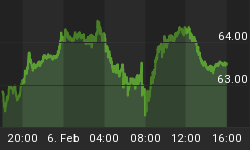Why read: Because in the current turbulent economic times it may prove to be one of the most important things you need to think about - if you haven't already.
Commentary: The Telegraph on September 19 showed ten slides of what it reports to be the results of a survey of the 'ten least trusted professions'. I found it no great surprise that politicians were ranked as 'least trusted' at 7%, but did find it surprising that journalists were ranked as 'second least trusted', also at 7%. Teachers (at 69%) were the most trusted of the ten categories reported.
That said, from my perspective there are journalists, and then there are 'journalists'. I categorize, whether fairly or not, most journalists as 'reporters'. Simply put, I distinguish between journalists who are 'reporters', and journalists who are 'journalists'. In the areas of economic and resource reporting, that is because for me many 'journalists' seem not to have specific educational backgrounds or business experience to go beyond reporting facts and events, and hence 'report the news' but don't analyze and interpret those facts and events in the context of meaningful inter-relationships, analysis, and the evolution of those facts and events over past weeks and months.
Unfortunately, I think that more often than not many people take what they read and listen to as fact, without questioning or thinking very hard about what they read.
That said, in my view what:
-
true 'journalists' (those who provide cross-pollination and analysis for one to think about) are particularly important; and,
-
'reporters' and talking heads do also is useful, but ought to be viewed by readers and listeners as the 'beginning to the story', not the 'end of the story'.
As I see things, what unbiased commentators, analysts, and 'real journalists' do each day is apply their respective experience, business knowledge, and analytic skills to the events and facts they learn of.
That said if you take the time to read what unbiased commentators, analysts, and 'the best journalists' write:
-
one ought to be somewhat better off than one would be had one not read it, even if one doesn't think further about it; and,
-
if one takes the time to read and think further about and challenge what is said, one ought to be a whole lot better off. This is because the perspective of such writers can be used as a cross-pollinator for one's own thoughts and ideas based on their own experience and business acumen.
The trick is to identify the writers one ought to pay close attention to.
Something to think about the next time you read your favorite newspaper or magazine, watch and listen to a talking head, or browse the internet.
Topical Reference: Ten least trusted professions, from The Telegraph, September 19, 2012 - reading time 2 minutes















